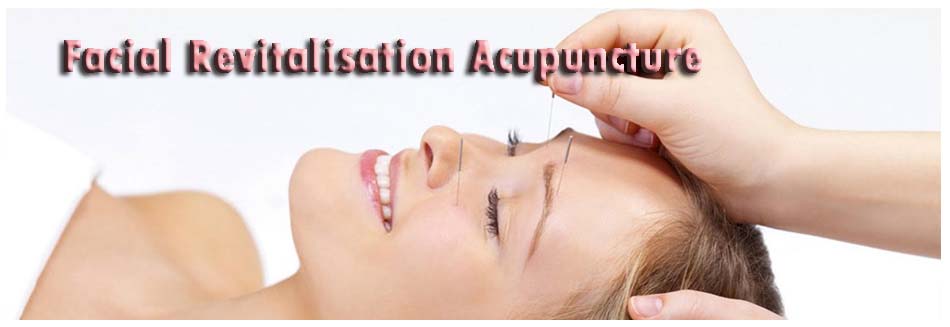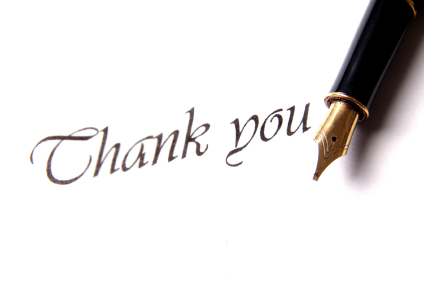Acupuncture Chinese Herb Medicine Treat for Infertility Related to Immunologic Factors
What Immunologic Factors Are and How They Can Affect Fertility
There are two types of immunologic reactions involved in conception and infertility:
Autoimmune disorders are more common, contributing to over ninety percent of immune-related infertility. A woman's immune cells form antibodies (small proteins that target and attach to cells and identify them for destruction) to tissue that is normal and part of their own body. This is an abnormal reaction that is associated with several non-pregnancy related diseases.
Alloimmune disorders, in contrast, involve the formation of antibodies against tissue associated with the male partner (e.g., paternal sperm proteins). Alloimmune problems are associated with less than ten percent of implantation failure or recurrent pregnancy loss.
During implantation, at the site where the fetal and maternal tissue meet (the embryo meets the vaginal wall), the maternal immune cells in the lining interact with one another through mutual exchange of hormone-like substances called cytokines. Because of this complex immunologic interplay, the uterus is able to foster the embryo's successful growth without allowing bacteria and other abnormal cells to infiltrate. In other words, the immune cells aren't shut down, they agree to host the embryo when all goes right. Thus, the trophoblast establishes the very foundation for the nutritional, hormonal, and respiratory interchange between mother and baby. In this manner, the interactive process of implantation is not only central to survival in early pregnancy but also to the health of the baby after birth. Problems occur when the maternal immune cells don't cooperate. Typically when this occurs, it will lead to implantation failure or pregnancy loss thereafter.
How Chinese Medicine and Acupuncture Treat Immunologic Factors
Traditional Chinese medicine has been treating autoimmune infertility for thousands of years. Modern Reproductive Endocrinology has only recently recognized the impact that immunologic factors have on fertility. Elevated immune markers, like APA (Antiphospholipid Antibodies) and NKa (Natural Killer Cells), are thought to be associated with an immune reaction to an implanting embryo. ASA (Anti-sperm Antibodies) inhibit the sperm from ever reaching the egg for fertilization. Other markers of potential immunological fertility factors include anti-nuclear antibody, premature elevations of follicle stimulating hormone, lupus anticoagulant, and other clotting factors. The main treatment protocol in Chinese medicine for immune factors is to reprogram the immune system so it will not react to self-tissue, and to allow the normal suppression involved in implantation to occur.
Acupuncture will balance the immune system by treating the immune system directly and via the lymphatic system. By selecting certain points, acupuncture can either down regulate or modulate the immune system and reduce possible inflammation that may be causing the elevation.
Chinese herbs are very effective at modulating the immune system and can thin the blood to encourage proper circulation.
Reproductive Organ Massage increases blood flow to the entire abdominal area and all of the organs through gentle manipulation of the abdominal musculature. This technique targets areas of stagnation and adhesions which can impede proper follicular maturation and release. ROM also retrains the breath into a deeper diaphragmatic space, allowing the body to process stress more quickly and achieve a parasympathetic state on a more regular basis. This parasympathetic state is necessary for proper hormonal production and regulation, and helps control an overactive immune system.
Dietary management is an essential element in ensuring proper functioning of the immune system. Eating a diet rich in organic fruits, vegetables, grains, and microalgae, and eliminating cold and raw food, as well as wheat, will ensure the immune system does not become overactive. Supplementation with antioxidants, flower pollen, and Reishi mushrooms will also help rebalance the body. Including mediation and stress reduction into your daily activities will reduce stress and lower the immune response as well.
Research
Immune infertility is a type of autoimmune disease. Women with immune infertility produce anti-sperm antibodies (ASA) in their reproductive tracts. These antibodies neutralize sperm by clumping them together and poking holes in their membranes. Anti-sperm antibodies also smother receptors involved in sperm-egg binding and fertilization. An estimated 12-15 percent of unexplained infertility in women is linked to ASA. On page 345 of issue #6, 2008 of the Zhe Jiang Zhong Yi Za Zhi (Zhejiang Journal of Chinese Medicine), Ye Ting from the Ningbo Municipal Chinese Hospital published an article titled “Observations on the Treatment of 46 Cases of Immune Infertility with Yi Kang Qiang Yun Tang (Repress Anti[bodies] & Assist Conception Decoction).” A summary of this article is presented below.
Cohort description:
Altogether, there were 92 cases of immune infertility in this two-wing comparison study. All these women were 25-38 years of age and had a disease duration (i.e., infertility) of 2-5 years. All were positive for serum ASA. Thirty-two cases suffered from primary onset infertility, while 60 cases suffered from secondary onset infertility. These 92 cases were randomly and evenly divided into a treatment group and a comparison group. These two groups were deemed statistically comparable for the purposes of this study in terms of age, disease condition, menstrual cycle, menstrual period, menstrual volume, and number of pregnancies.
Treatment method:
All members of both groups were told to use condoms with sex for the next three months. All members of the treatment group were orally administered the following Chinese medicinal formula:
Dang Shen (Radix Codonopsis)
Tu Si Zi (Semen Cuscutae)
Sheng Di Huang (uncooked Radix Rehmanniae)
Nu Zhen Zi (Fructus Ligustri Lucidi)
Pu Gong Ying (Herba Taraxaci), 15g each
Mu Dan Pi (Cortex Moutan)
Huang Qin (Radix Scutellariae)
Dang Gui (Radix Angelicae Sinensis), 10g each
Shan Zhu Yu (Fructus Corni), 9g
Chi Shao (Radix Rubra Paeoniae), 12g
Shan Yao (Radix Dioscoreae)
Huang Qi (Radix Astragali), 20g each
If there was damp heat, 20 grams each of Hong Teng (Caulis Sargentodoxae) and Bai Jiang Cao (Herba Patriniae) and 30 grams of Yi Yi Ren (Semen Coicis) were added.
If there was blood stasis, 10 grams of Ze Lan (Herba Lycopi), 20 grams of Liu Ji Nu (Radix Angelicae Anomalae), and 15 grams of Yi Mu Cao (Herba Leonuri) were added.
If there was heart-liver depressive fire, nine grams each of Chai Hu (Radix Bupleuri) and blackened Zhi Zi (Fructus Gardeniae) and 15 grams of Xia Ku Cao (Spica Prunellae) were added.
If there was spleen-stomach vacuity weakness, Dang Gui and Sheng Di Huang were removed and 15 grams of stir-fried Bai Zhu (Rhizoma Atractylodis Macrocephalae) and 12 grams of Fu Ling (Poria) were added.
One packet of these medicinals was decocted in water and administered warm per day in two divided doses. One month’s administration equaled one course of treatment. After each course, serum ASA were checked again. If they had turned negative, then treatment was stopped. If they were still positive, treatment was continued for a total of three courses.
All cases in this study were then told to have sex without a condom at the time of ovulation for the next year. At the end of that year, pregnancy rates were analyzed.
Study outcomes:
Marked effect meant that the serum ASA turned from positive to negative and the patient conceived within the next year. Some effect was defined as serum ASA turning from positive to negative but no conception within the next year. No effect meant that serum ASA did not turn negative and there was no conception within the next year. The following table shows the outcomes of both groups based on these criteria.
Group |
Marked effect |
Some effect |
No effect |
Total effectivness |
Treatment |
20 |
23 |
3 |
93.48% |
Comparison |
9 |
15 |
22 |
52.17% |
Therefore, there was a marked statistical difference in the outcomes of these two groups (P ≥ 0.05), with the Chinese medicinal treatment being considerably more effective over all than the simple use of condoms for a period of desensitization. Further, among the 43 cases in the treatment group whose serum ASA turned negative, 20 cases turned negative after one course of treatment, 18 turned negative after two such courses, and five turned negative after three courses. The mean duration of administration of Chinese medicinals was 49.53 ± 20-58 days.
Discussion:
According to Dr. Ye, within Chinese medicine, while the main local causes of immune infertility are damp heat and blood stasis, liver-kidney yin vacuity is the main systemic disease mechanism of this condition. If yin blood is insufficient, then qi-fire stirs internally. Fire-heat burns the essence and the chong and ren are unable to obtain their mutual support (i.e., the mutual support between qi and blood, the chong mai being the sea of blood and the ren mai being the sea of yin qi). In addition, yin vacuity may eventually reach yang, damp heat may assail internally, and the qi mechanism may become inhibited. This then results in stasis turbidity obstructing internally with inability of the (two) essences to gather (together) to produce conception. Therefore, based on the dictum, “[When] treating disease, seek the root,” the treatment principles for this condition should be to enrich and supplement the liver and kidneys at the same time as clearing heat and eliminating dampness, quickening the blood and transforming stasis. Within the above formula, Sheng Di Huang, Shan Zhu Yu, Shan Yao, and Nu Zhen Zi enrich yin and supplement the kidneys, level the liver and clear heat. Dang Gui, Shi Shao, and Mu Dan Pi cool the blood and transform stasis. Dang Shen, Huang Qi, and Tu Si Zi supplement the qi and assist yang, while Huang Qin and Pu Gong Ying clear heat and dry dampness, drain fire and resolve toxins. Thus, when all these medicinals are used together, they enrich yin and downbear fire, quicken the blood and transform stasis, clear heat and disinhibit dampness.
Readers should note that Dr. Ye is implying that, in a typical case of immune infertility, there will be at least three patterns present and possibly more. These three patterns are liver blood-kidney yin vacuity, damp heat, and blood stasis. However, there may also be liver depression qi stagnation, spleen qi vacuity, and/or spleen-kidney yang vacuity. These complicating factors are implied by the various additions and subtractions to the main guiding or base formula. This underscores the fact that, in clinical practice, patients with chronic conditions always manifest multi-pattern presentations which then require complex formulas in contradistinction to the simple, one-pattern formulas we learn as undergraduates. Therefore, there is a fundamental difference between how we learn Chinese medicine in school and how Chinese medicine is actually practiced in real life. Because there is little, if any post-graduate mentoring or interning in the Western practice of Chinese medicine, it is very important for young graduates to learn this fact as quickly as possible and to use more complex formulas than what they studied in school.
We have over 31 years clinic experience treated successfully for many patients who suffering Infertility.
We can help you. If you and any of your friend who suffering Infertility,
Please call now 310-316-5707 for a FREE Consultation.










